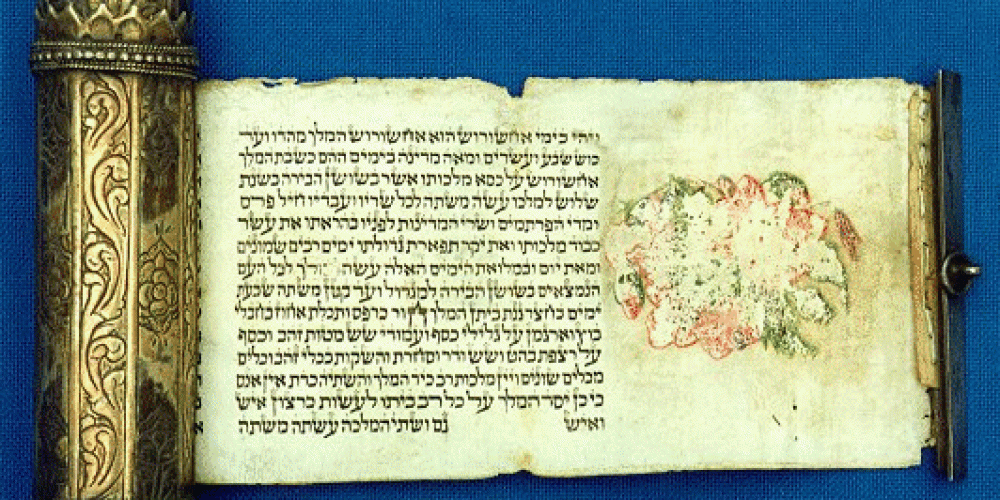
Rare is the person who has the opportunity to knowingly shape the course of Jewish history. Most are happy to be relieved of that responsibility. From Moshe to Yonah, Yirmiyahu to Esther, few are willing to carry such awesome responsibility on their shoulders. And even—or, shall we say, especially—when taken on willingly, the burden can be too much to handle. How can one be confident in a decision made today, the impact of which will reverberate for hundreds or even thousands of years?
Without the courageous leadership of Rav Yochanan ben Zackai, Judaism might not have survived the Roman conquest—and Rabbinic Judaism would have been stillborn. He ceded Jewish claims to Jerusalem to the Romans in order to rebuild Judaism from the ground up in Yavneh. Rav Yochanan ben Zackai was tormented by his decision; how could he not be?
Uniquely amongst the Talmudic rabbis, Rav Yochanan ben Zackai faced death with fear and tears (Brachot 27b). Yet his greatness is specifically manifest in his willingness to act and shape the future—even as he had no way of knowing whether his decision would be the correct one. We need only contrast him with Rav Zecharya ben Avkolus who, given the opportunity to act to avert the destruction of the Temple, was paralyzed by fear and did nothing. He has gone down in Jewish history as a misguided zealot: “Rav Yochanan said: The inaction of Rabbi Zecharya ben Avkulos destroyed our house, burned our courtyard and exiled us from the Land” (Gittin 56a).
As Theodore Herzl demonstrated, often it is chance circumstances that lead a person to become the catalyst for great historical change. And it goes without saying that one need not be observant to be the agent of change. Esther may not have revealed her identity, but even had she wanted to, she may not have known very much about her identity to reveal. Like most of the Jews in the Persian Empire, Esther seems to have been fully assimilated into Persian society. Unlike their ancestors, Mordechai and Esther had foreign names, and when given the opportunity to return to Israel, very few Jews did. The Rambam (Hilchot Tefillah 1:4) notes that beginning during Babylonian rule and accelerating during the Persian period, Jews had stopped speaking Hebrew, leading Ezra to establish a fixed text for prayer. Our Sages note that the Jews fully participated in the royal party of Achashverosh, seemingly oblivious to issues of kashrut or the use of former Temple vessels. Esther called a three-day fast beginning on the 14th of Nissan. Apparently, very few celebrated Pesach in Shushan—maybe they did not follow the Hebrew calendar.
Esther, the most unlikely of queens, had been in power for five years when Haman had Achashverosh agree to his plan for a “final solution”. Yet, like many a successful Jewish politician, she was most hesitant to use her power and influence for parochial Jewish causes, especially if such entailed some risk. “And Mordechai said in reply to Esther, ‘Do not think you can hide yourself in the royal palace… and who knows if it is for this moment that you reached royalty?’” (Esther 4:13-14).
Esther had a tough decision to make—one at which many politicians utterly fail. Would she put her nation’s interests ahead of her own? She was asked to risk her career and possibly her life for the Jewish people—something any political advisor would urge against. Why sacrifice power for some (likely misguided) attempt to help a people no one cared much about?
Fateful decisions are, almost by definition, those made out of the box. Great ideas in business, technology, philosophy, and even religion are those that go against accepted wisdom, and appear radical at the time. Ridicule is often the fate of these innovators, unless and until their brilliance becomes acknowledged. And that may be many years after they have died.
“And Mordechai the Jew…was beloved by the majority of his people” (Esther 10:3). Despite saving the Jewish people from extermination, a sizable minority of the Jewish people disapproved of Mordechai’s actions. Moreover, the rabbinic leadership distanced themselves from Mordechai (Megillah 16b). They disapproved of his political activism and his non-conformity—believing that salvation would come through Torah learning alone.
Our Sages—perhaps the same ones who distanced themselves from Mordechai—did not want to make Purim a permanent holiday (see Megillah 7a). They failed to understand that Purim ushered in a new era in Jewish history. V’nahafachu, the world was turned upside down. In this new world, a world of hester panim, of the hidden face of G-d, G-d no longer spoke through prophets. Man would take centre stage in history, bidden to apply the message of Torah to the world around him. This is a great responsibility, but a most wonderful one. No wonder Purim is such a happy holiday!



